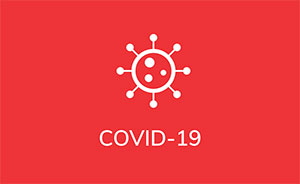Dr. David Cucchi and colleagues presented this research at the American Society for Hematology annual meeting, which was held in December 2021 (ASH 2021). Since the meeting, a more detailed report has been published here.
Background:
Patients with chronic lymphocytic leukemia (CLL) and small lymphocytic lymphoma (SLL) are immunocompromised, meaning their immune system doesn’t work normally. Previous studies have reported that patients with CLL have impaired immune responses to vaccination, especially patients treated with Bruton tyrosine kinase inhibitors (BTKi). This study aimed to evaluate SARS-CoV-2–specific antibody responses after the first, second, and third doses of the BNT162b2 (Pfizer) and mRNA-1273 (Moderna) vaccines.
Takeaways:
- This study evaluated vaccine response in 530 patients with CLL in France.
- 40% of patients were treatment-naïve, 26% had received previous treatment for CLL and were off therapy, and 34% were receiving therapy.
- Patients received two doses of either the BNT162b2 vaccine (Pfizer) or the mRNA-1273 vaccine (Moderna) at a 4-week interval and a third dose if they were seronegative (negative for antibodies) after the second dose.
- The response rate was 27% after dose 1 and 52% after dose 2.
- After dose 2, treatment-naïve patients had the highest response rate (72%), followed by patients previously treated with chemoimmunotherapy (60%).
- Among patients currently receiving therapy, patients receiving Bruton tyrosine kinase inhibitor alone (22%) had a poorer response rate than those receiving venetoclax monotherapy (52%).
- All patients receiving venetoclax in combination with an anti-CD20 monoclonal antibody were seronegative after dose 2.
- Patients who were still seronegative after dose two were given a third dose, and after dose three, the global response rate was 35%.
Conclusions:
These findings support current recommendations that immunocompromised patients should receive three doses of the Pfizer or Moderna mRNA COVID-19 vaccine as their primary vaccine series. BTKi’s and anti-CD20 monoclonal antibodies negatively impacted antibody production, which is similar to the findings of other reports of vaccination efficacy. The numbers were small, but antibody responses seemed less impaired after venetoclax alone compared to the BTK inhibitors. If possible, COVID-19 vaccination doses are best if received before starting any new CLL / SLL treatment regimens since several common CLL / SLL therapies will diminish the body’s ability to respond adequately to vaccines.
If you want to drill down further, there is much more data to review in the full report and its update.
Here is the link to the full report for more details.
Take care of yourself first.
Ann Liu, PhD

















